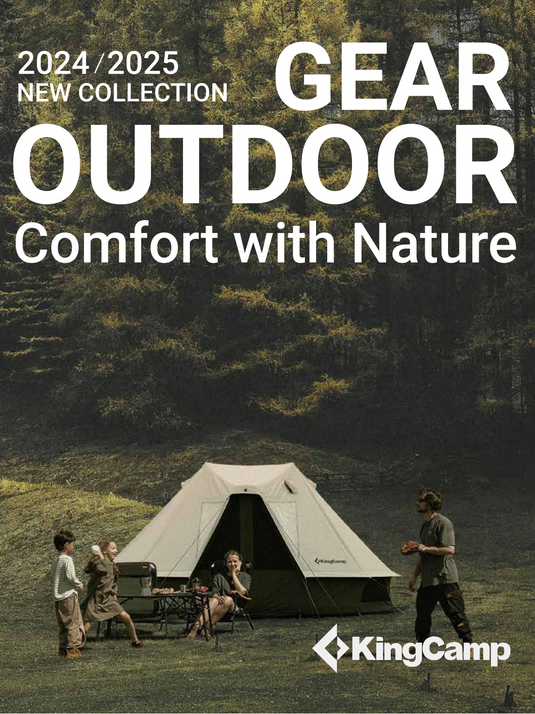Camping and hiking are exhilarating outdoor activities that bring us closer to nature and provide us with unforgettable experiences. Whether you're trekking through rugged trails or setting up camp under the stars, it's essential to fuel your body with nutritious and delicious food to keep you energized throughout your adventures. In this blog post, we'll share 10 food tips to help you make the most of your camping and hiking trips.

-
Plan Your Meals Ahead: Before embarking on your camping or hiking trip, take some time to plan your meals. Consider the duration of your journey, the number of meals you'll need, and any dietary restrictions or preferences you have. Planning ahead will ensure you have the right amount of food and avoid unnecessary weight in your backpack.
-
Pack Lightweight and Non-Perishable Foods: When packing food for your outdoor adventure, opt for lightweight and non-perishable options that are easy to carry and won't spoil quickly. Some great choices include dehydrated meals, nuts, dried fruits, energy bars, and trail mix. These foods provide essential nutrients and energy without weighing you down.
-
Bring a Portable Stove or Campfire Cooking Equipment: While some camping sites may have designated cooking areas with fire pits, it's always a good idea to bring your portable stove or campfire cooking equipment. This allows you to cook hot meals and beverages on the go, enhancing your camping experience and providing you with warm and comforting food after a long day of hiking.
-
Include Fresh Fruits and Vegetables: Although fresh produce can be heavier to carry, incorporating fruits and vegetables into your camping and hiking meals is essential for staying healthy and nourished. Opt for sturdy options like apples, oranges, carrots, and bell peppers that can withstand the journey without getting crushed or spoiled.
-
Choose High-Protein Snacks: Protein-rich snacks are excellent for replenishing energy and repairing muscle tissue during outdoor activities. Pack snacks like jerky, cheese sticks, hard-boiled eggs, and nut butter packets to keep you fueled and satisfied throughout the day.
-
Don't Forget the Hydration: Staying hydrated is crucial when camping and hiking, especially in hot or high-altitude environments. Bring plenty of water or invest in a portable water filtration system to replenish your fluids from natural water sources along the way. Consider adding electrolyte tablets or powdered drink mixes to your water for added hydration and replenishment of essential minerals.
-
Embrace One-Pot Meals: One-pot meals are convenient and efficient for camping and hiking trips, as they require minimal cleanup and can be cooked in a single pot or pan. Experiment with recipes like chili, stir-fries, pasta dishes, and soups that can be easily prepared over a campfire or portable stove, allowing you to enjoy a hearty meal with minimal hassle.
-
Pack Nutrient-Dense Foods: Opt for nutrient-dense foods that provide a balance of carbohydrates, protein, and healthy fats to sustain your energy levels and keep you feeling full longer. Foods like whole grains, legumes, nuts, seeds, and lean meats are excellent choices for fueling your body during outdoor adventures.
-
Practice Proper Food Storage: Proper food storage is essential for preserving the freshness and safety of your meals during camping and hiking trips. Use airtight containers or resealable bags to store perishable items and keep them away from direct sunlight and heat. Consider bringing a portable cooler or insulated food bag for storing perishable foods like meats, dairy products, and fresh produce.
-
Leave No Trace: Lastly, remember to practice Leave No Trace principles when camping and hiking, including proper disposal of food waste and packaging materials. Pack out all trash, including food scraps, and avoid feeding wildlife to maintain the integrity of the natural environment and protect local ecosystems for future generations to enjoy.
Conclusion: By following these 10 food tips for camping and hiking, you can ensure you have a nourishing and enjoyable outdoor experience. From planning nutritious meals to packing lightweight and portable foods, these tips will help you stay energized and satisfied throughout your adventures in the great outdoors. So, grab your backpack, lace-up your hiking boots, and get ready to fuel your next camping or hiking trip with delicious and nutritious food!



